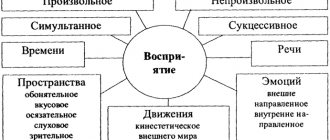Psychology, like any other science, has its own research methods. They are the ones that students need to use in their coursework and dissertations.
What research methods are used in psychology? We will talk about this in detail in the article. Read and you will become familiar with the main research methods in psychology and their characteristics.
Do you want to be the first to receive useful materials? Don't forget to subscribe to our information channel on Telegram. And stay tuned for current promotions and discounts from the company.
Help is needed?
Entrust your work to a PhD candidate!
Methods of psychological research: what is it?
Before we begin to classify methods of psychological research, let's figure out what they are and what criteria they must meet.
Methods of psychological research in psychology are techniques and means that allow students or scientists to obtain factual data and reliable indicators. And on their basis, put forward theories, look for real evidence and develop effective practical recommendations.
Psychological research methods must meet the following requirements:
- Objectivity means that the methods used in the study of mental phenomena must take into account the objective nature of the human psyche.
- Validity - this indicator indicates that the chosen methodology is justified and can be applied in real conditions.
- Reliability means that the psychological research methods used give the same results even when repeated many times.
These are the requirements that official science makes for all research methods, including psychological ones.
In psychological universities, students write coursework and dissertations, each of which must contain its own methodological base. To create it, you need to understand what research methods are used in psychology.
A little about the concepts of truth
In philosophy, truth corresponds to a set of concepts that can be used to distinguish reliable knowledge from unreliable knowledge based on how it is consistent with reality, as well as on the extent to which it is contradictory or logically consistent. Actually, truth is the cornerstone of knowledge in general.
Scientists identify the following concepts of truth:
- Classical concept (the concept of Plato and Aristotle). The truth in it is the correspondence of a person’s knowledge to how things are in the real world. This concept is the most popular in scientific and philosophical circles, and serves as the basis for dialectical materialism, founded by Karl Marx and Friedrich Engels.
- Apriorist concept. Here the truth is the pre-experimental knowledge of reason and sensuality, which constitute human consciousness. They are the measure of the information received and the truth. Consciousness is the source of the rules of the external world, which is why these rules are similar to truth. These views were held by Immanuel Kant and his associates.
- Ontological concept. Truth is all of reality at the same time, and individual things cannot be truth. The whole here is not the sum of its parts, and therefore only knowledge that connects all the parts can be reliable. Proponents of this concept were the famous German philosopher Martin Heidegger and the Russian mystic and religious thinker Vladimir Sergeevich Solovyov.
- Coherent concept. According to it, true knowledge is ordered and consistent, and logical correctness and correctness should be considered truth. Also, the consistency of assumptions regarding fundamental scientific knowledge can be true. Famous proponents of the coherence concept include Bertrand Russell, Ludwig Wittgenstein and Alfred Tarski.
- Pragmatist concept. Only knowledge that can provide a certain real result can be true. Those. the truth here is the effectiveness and benefit of knowledge. These ideas were once shared by the philosophers William James and Charles Peirce.
- Conventionalist concept. In it, truth is the result of a public or tacit agreement between participants in the process of cognition, and provided that knowledge is not only proven, but also consistent with each other. Representatives of this concept: Thomas Samuel Kuhn and Hilary Whitehall Putnam.
- Existentialist concept. Considering that the existential state is a state of a person’s immersion in the spiritual sphere and the search for the meaning of life, truth in this concept is identified with values. And the criteria of truth are spiritual development and creative self-realization. Karl Jaspers, Soren Kierkegaard, Nikolai Aleksandrovich Berdyaev and some other famous thinkers were inclined towards existentialism.
It is impossible to achieve truth in the process of cognition, no matter how it happens, if there is no specific goal, which is often truth itself. Based on this, it is important to understand that in cases where it has not yet been possible to achieve the truth, a person must have the conviction that this will certainly happen. And here the conversation already begins about faith, which once again shows us how voluminous and limitless the theory of knowledge is, and how difficult it is to describe it using ordinary language.
But the purpose of the article was not to provide a comprehensive explanation of the theory of knowledge. Our task was to introduce you to the general and basic concepts in epistemology and briefly convey its essence. The theory of knowledge plays a serious role in a person’s knowledge of the world around him and himself. She studies knowledge and everything that can be connected with it, and, as we see, there are a lot of such questions.
Epistemology has already come a long way, but it still continues to develop, as a result of which new concepts, approaches and ideas appear. And there will most likely never be a limit to this development. If you are interested in more specific questions on the topic of the theory of knowledge, you will inevitably have to turn to third-party sources, of which there are many that can be found today. And you can get the first answers to your questions from this short video from Roman Valerievich Zarapin, candidate of historical sciences.
Did you like the article? Join our communities on social networks or our Telegram channel and don’t miss the release of new useful materials: TelegramVKontakteFacebook
We also recommend reading:
- Storytelling
- Why understand philosophy?
- Agnosticism as freedom of knowledge
- Cognitive psychology and cognitive psychotherapy
- Neopositivism and the principle of verification
- Scientific knowledge: basics
- The emergence of positivism
- Philosophy in Action: How Positivism Searches for Truth
- The problem of demarcation of scientific knowledge
- Embodied Cognition
- 7 books about metacognition
Key words:1Cognitive science
Classification of research methods in psychology
In modern psychological science, many methods are used to classify scientific research methods. We will look at one of the most popular, which includes four large groups:
- organizational methods;
- empirical methods;
- methods that allow data processing;
- interpretative methods.
Projective methods are often used in child psychology
Observation method
One of the empirical methods is the observation method. This method requires careful preparation and professionalism of the researcher, because observation is conducted of a person’s mental manifestations.
This ancient method of cognition in psychology appears in two forms - firstly, as introspection or introspection, and secondly, as external or objective observation.
The observation procedure, in general, consists of certain processes:
- setting goals and objectives for observation;
- choice of object, subject and situation;
- choosing a method for observation that ensures the collection of the necessary information;
- choosing a method for recording observed phenomena;
- processing of received information and its interpretation.
Observation becomes a method of scientific knowledge insofar as it is not limited only to recording facts, but formulates hypotheses in order to test them against new observations.
Types of observation can be different - short-term observation (slice), long-term observation, which can last several years (longitudinal observation).
It can be laboratory, taking place in artificial conditions, or natural, taking place in conditions familiar to humans.
There are included and non-included observations. With participant observation, both the observer and the observed are included in the activity, but the observed do not know anything about the observation being made.
Non-participant observation presupposes the distribution of roles - some become observed and know about it, others become observers.
The observation method can be structured, when the structure of the observed facts is strictly subdivided, and unstructured - in this case, observation occurs over the entire set of facts.
Continuous and selective observation. All behavioral reactions are recorded during continuous observation, while during selective observation the area of observation is limited.
Observation can also be direct and indirect. Direct observation is carried out by the person himself, who draws conclusions based on its results.
Vicarious observation is carried out by another person.
Any method has its advantages and disadvantages. The observation method is not without its drawbacks, which are as follows:
- the results of observation are quite strongly influenced by the attitudes, interests, personal characteristics, and psychological state of the observer;
- the observer's focus on confirming his hypothesis leads to large distortions in the perception of events;
- difficulty in interpreting the data obtained;
- observation requires a lot of time.
As for introspection (introspection), this is the first method of psychology that allows us to study the soul and psyche of a person.
Introspection is an individual’s internal observation of his own mental manifestations. In psychology, professional introspection is not only useful, but even necessary, and in order for a person to be able to reflect himself, this must be learned.
Methods of psychological research: table
Before briefly understanding individual research methods in psychology, let's look at which methodologies are included in the individual groups. To do this, we have compiled a clear table of research methods in psychology:
| Organizational methods | Empirical methods | Quantitative and qualitative methods | Interpretive methods |
| comparative; | observational: observation and self-observation; | statistical analysis; | genetic; |
| longitudinal; | psychological experiment; | qualitative analysis. | structural: typology and classification. |
| complex. | psychodiagnostic: testing, survey, conversation, and so on; | ||
| praximetric; | |||
| psychological modeling; | |||
| biographical. |
By the way! Our readers now have a 10% discount on any type of work.
In scientific research, different methods from each group are used. Their use depends on the goals and objectives and on certain stages of work on a course or diploma project. You can also use several methods from the same group. This helps to consider the subject of study from different angles and make more informed conclusions.
Organizational research methods in psychology
Organizational methods are those methods that define the form of scientific research in psychology. They are general scientific and answer the question: how exactly will the study of psychological problems be carried out?
Comparative method
These are all methodologies that are based on comparisons of different groups of people or psychological phenomena. They can be compared according to different indicators:
- development of people at different age stages;
- ability to cope with difficulties;
- reactions to certain circumstances, and so on.
The comparative method is also called the cross-sectional method. This means that it is applied one-time to obtain indicators characteristic of a given moment. Such methods are more often used for socio-psychological research of individuals and large groups.
Example: comparison of psychological resilience of men and women in stressful situations.
Longitudinal method
Unlike the comparative method, the longitudinal method assumes some duration in time. Most often, such techniques are used to study personality in psychology in order to see dynamic changes.
The main difficulty of this methodology is to organize constant monitoring of the object, which will last several years. Questions also arise with the purity of the experiment - too many factors can affect the final result.
Example: the role of school education in raising children
The longest psychological experiment lasted 75 years! During this time, Harvard University scientists observed a group of 724 people, which included both people from wealthy families and residents from disadvantaged areas. The purpose of the study is to understand what determines health and happiness. The conclusion was unexpected - the most important stimulus in life is close relationships with others.
Complex method
This is an interdisciplinary research method that helps to study a person and his psychological characteristics from different angles. For example, with psychological and biological.
Example: moral development and choice of value orientations in adolescence and youth.
Types of knowledge (scientific, creativity, self-knowledge)
It is customary to distinguish 7 types of knowledge:
- Ordinary involves the daily acquisition of basic information about the structure of the world. You can call it receiving life experience: living and understanding.
As a result, the individual understands what to do and what not to do, what is good and what is bad for him, masters ideas and builds cause-and-effect relationships that in the long term make his life better.This type of cognition is available to both adults and children. A child, playing in the sandbox, learns that if you pour sand on someone’s head, he will not be praised for it - he will also be punished. A housewife who accidentally adds an extra pinch of salt to a dish comes to the unexpected conclusion that it makes the food much tastier.
- Scientific knowledge is based on logic, studying cause-and-effect relationships.
Scientists put forward hypotheses (what is it?), which are confirmed or refuted during the research process. This type is also called rational, that is, based on common sense and objectivity. - Mythological - it was once an integral part of primitive society.
Ancient people did not bear any responsibility for anything, throwing it off to the forces of nature. For example, if a person fell from a cliff and died, it was not because the latter was careless and did not calculate his physical strength, but because he was taken by one of the divine beings, of which there were many invented at that time. It should be noted that in the modern world mythological knowledge also exists. It is adhered to mainly by those who are far from science or those who, due to their psychological characteristics, do not want to be responsible for their actions and mystify life events (especially negative ones). - Religious - aimed at studying relationships with God. It is interesting that the latter here plays the role of both subject and object. Religious consciousness perceives reality as God's providence, aimed at good thoughts and actions, and is in anticipation of feedback from above.
- Artistic knowledge and creativity is a way of reflecting reality through symbols and images.
It is limitless and cannot be analyzed or proven. It is a product of mental activity based on the ideas of the creator. For example, futuristic paintings, as a reflection of the artist’s inner world, contain illogical, inexplicable images that cannot be subjected to scientific research, however, they have every right to exist. - Philosophical knowledge is concerned with defining the role of man, searching for the meaning of life through the prism of the categories of good and evil. Philosophy tries to study the essence of human existence and answer “eternal” questions regarding existence. Who are we, why do we live, why was the world created, what is truth, etc.
- Self-knowledge is the study of one’s own states: moods, thoughts, thoughts and actions. This is an analysis of one’s personality, leading to an awareness of one’s needs, goals and motives, which helps a person to be confident in himself and his abilities, not to depend on the crowd and its stereotypes.
Empirical research methods in psychology
Empirical research methods are direct practical methods by which the desired psychological indicators are obtained. They answer the question: what tool should I use for research?
There are quite a few of them, so let’s look at those that can most often be found in term papers and dissertations in psychology.
Observation is one of the main research methods in psychology.
Observational methods
The main method of psychological research is observation. It is considered one of the most ancient. Observation as a methodology is used in almost all scientific works. However, not independently, but in conjunction with other empirical methods. This is because pure observation is not very objective.
To reduce the level of errors, certain criteria are usually established within the framework of which observations are carried out.
Example: observing the behavior of teenagers in a new team.
In addition to classical observation, the method of self-observation is used. It allows you to monitor your own reactions to external stimuli and increase your level of control.
Method of psychological experiment
The method of psychological experiment is one of the main methods of psychological research. This is an experiment in which the experimenter creates certain conditions and checks how the subjects will react.
There are several types of experiments:
- laboratory - conditions are completely controlled by the researcher;
- natural - the study is carried out under normal conditions;
- explicit - participants know that they are taking part in an experiment;
- hidden - participants do not realize that they are taking part in an experiment.
Example: as an example, we can cite the famous “Third Wave” experiment, which was conducted by an American teacher in a regular school. He showed how obedient students can turn into real fascists in a week.
Psychodiagnostic methods
Psychodiagnostic - methods of psychological research aimed at diagnosing the psychological characteristics of a person and individual groups.
There are many types of psychodiagnostic methods:
- psychological testing;
- survey;
- surveys;
- interview;
- conversation;
- projective techniques.
In a casual conversation you can get a lot of important information.
Example: various professional tests that help determine the professional inclinations of people.
Projective techniques are based on the projection method, when a person unconsciously transfers his own fears, values and desires to surrounding objects. A striking example of such a technique is Rorscharch's inkblots.
Praximetric method
This is a method that is used to analyze the processes and results (products) of activities and draw conclusions based on this analysis.
This method is most often used in working with children of preschool and school age, examining their drawings or crafts made from plasticine. They are also used in historical experiments, studying the life and culture of ancient people.
Example: studying the psychological state and self-esteem of children using drawings depicting a tree or a house.
Method of psychological modeling
When the object is not available for direct study, then the modeling method is used. In psychology, it is also used when you need to build a psychological model and study its qualities.
The modeling method is used in works devoted to NLP. They don’t just “remove” the behavior patterns of successful people, but also teach them to others so that they can achieve their goals faster.
Neurolinguistic psychology, or NLP, is one of the psychological areas whose techniques help a person discover his personality, improve communication skills, expand the boundaries of thinking and develop more successful programs.
Example: study the behavior of the best speakers, highlight the main characteristics and describe a psychological model of successful speech.
Biographical method
Another experimental method that deserves attention is biographical. It is based on the study of a person’s life path, key situations that influenced his personality and development. Such diagnostics help to correct a person’s behavior, develop new reactions and improve life.
Example: the development of psychosomatic reactions in girls who were subjected to sexual violence in childhood.
This method can be used to study the psychological portrait of great people of different eras. For this purpose, diary entries, memoirs, letters and other archival information are used.
Cognition is...
Civilization tends to develop. This happens due to the human need to acquire new knowledge: the desire to understand the unknown, spiritual improvement and curiosity.
Plato was the first to speak about the theory of knowledge: he defined this term as obtaining knowledge about the environment and the phenomena occurring in it.
Cognition is an activity that includes various methods and techniques for obtaining information about the world .
Like all other types of activity, cognition has its own structure :
- subject is the one who performs actions aimed at obtaining knowledge. For example, you are reading this article to learn what cognition is. In this case, you are the subject of cognitive activity;
- object is what is being studied. What the subject's activity is aimed at. Using the example mentioned above, we can say that the object of your cognitive activity is the concept of “cognition”;
- motives - in simple terms, this is why we do something (see what motivation is). In this context, a distinction is made between practical and theoretical motives. The former encourages one to acquire knowledge for further use in order to improve the quality of life (studying at an institute gives a profession that feeds).
- The second are based on receiving pleasure simply from the process of cognition itself (read an article and replenish the bins of your knowledge);
From this we can conclude that cognition is an element of all other activities.
Quantitative and qualitative research methods in psychology
To organize psychological research, organizational methods are used to conduct empirical ones. And for data processing - methods of quantitative and qualitative analysis. Let's talk about the most common ones.
Statistical analysis method
The method of statistical or quantitative analysis allows you to collect statistical data obtained during the study. On their basis, larger-scale phenomena are studied.
Example: general statistics of people suffering from psycho-emotional disorders.
Qualitative analysis method
Unlike quantitative analysis, quantitative analysis does not involve counting data. With its help, the obtained indicators are described based on the necessary psychological characteristics. This analysis strengthens the reliability of the study.
Example: the level of severity of psycho-emotional disorders with which people most often turn to psychologists.
Forms of knowledge - sensual and rational
According to Plato, there are two levels of knowledge: sensory and rational. This means that when exploring the world around us, we either interpret its images with the help of thoughts, or perceive it through our senses.
Let's look at them separately in more detail:
- Sensory cognition represents the first stage of acquaintance with the environment, since a person first perceives information through the senses : vision, hearing, smell, touch and taste.
To evaluate a culinary dish, we must see it, smell it, and taste it on our tongue. To read a book, we need eyes. Cognition through the senses includes: - sensation is the stimulation of the senses by external stimuli (I eat an apple - it tastes sweet);
- representation is the appearance of a picture that is stored as a memory. In the future, when I remember an apple, a round, hard, green fruit with a sweet taste and a pleasant smell will pop up in my head.
perception is the birth of the image of the stimulus (the apple is round, hard, green, smells good);
- concept - a thought reflecting objects united by the same characteristics. For example, everyone knows what a chair is. The concept of a chair includes all the chairs in the world of different shapes, quality, and materials. We do not call a chair a specific object in the singular: the concept unites their many;
At the moment there is no clear conclusion which is more important - the mind or the feelings. Therefore, it is generally accepted that both levels of knowledge are equally important: for a more complete understanding of the phenomenon, it is necessary to use both.
Feelings are a conductor between us and the environment: if all feelings disappear at once, then knowledge will become impossible. However, the work of all five also does not guarantee the acquisition of comprehensive information, and this is where the mind “helps us out”, building the acquired knowledge in an understandable way.
Interpretive methods in psychology
And the latest methods of psychological research, without which no work can do, are interpretive. This is the methodology on the basis of which conclusions will be drawn regarding the project studied.
Competently interpreting data is an important stage of work.
Genetic method
The genetic method involves a linear study of materials, which will be based on time periods or important life stages of people. It is more often used in longitudinal studies.
Structural methods
Structural methods place the main emphasis on looking for unifying features, identifying common features and systematizing. There are several varieties of such methods:
- typology;
- classification.
They are often used as the main methods for socio-psychological research of groups and communities.
Look at examples of work and make sure that we will help you conscientiously!
The result is an impressive list. But now you know what methods to use to organize and conduct scientific research, as well as process and draw the right conclusions. And if you don’t have time to write a coursework or diploma in psychology yourself, contact our student service.
Forms of the scientific-cognitive process
The main forms of scientific knowledge are:
- Scientific facts are reflections of real facts from the surrounding reality in the human mind. Scientific facts can be subject to verification - a special test designed to prove their truth;
- Empirical laws , which are generalizations of empirical ones, i.e. facts taken from practical experience that make it possible to identify connections between processes and phenomena of the surrounding reality;
- Problems are theoretical or practical questions that arise for researchers during the cognitive process and require substantiated answers;
- Hypotheses are assumptions formed on the basis of scientific facts that explain a phenomenon or process. Often hypotheses require proof of their truth and scientific testing;
- Theories are the most complete forms of scientific knowledge about a certain subject, phenomenon or process. The theory is formed on the basis of a proven and tested hypothesis, representing a complex that includes ideas, principles and provisions that provide people with the most complete picture of the world around them.








